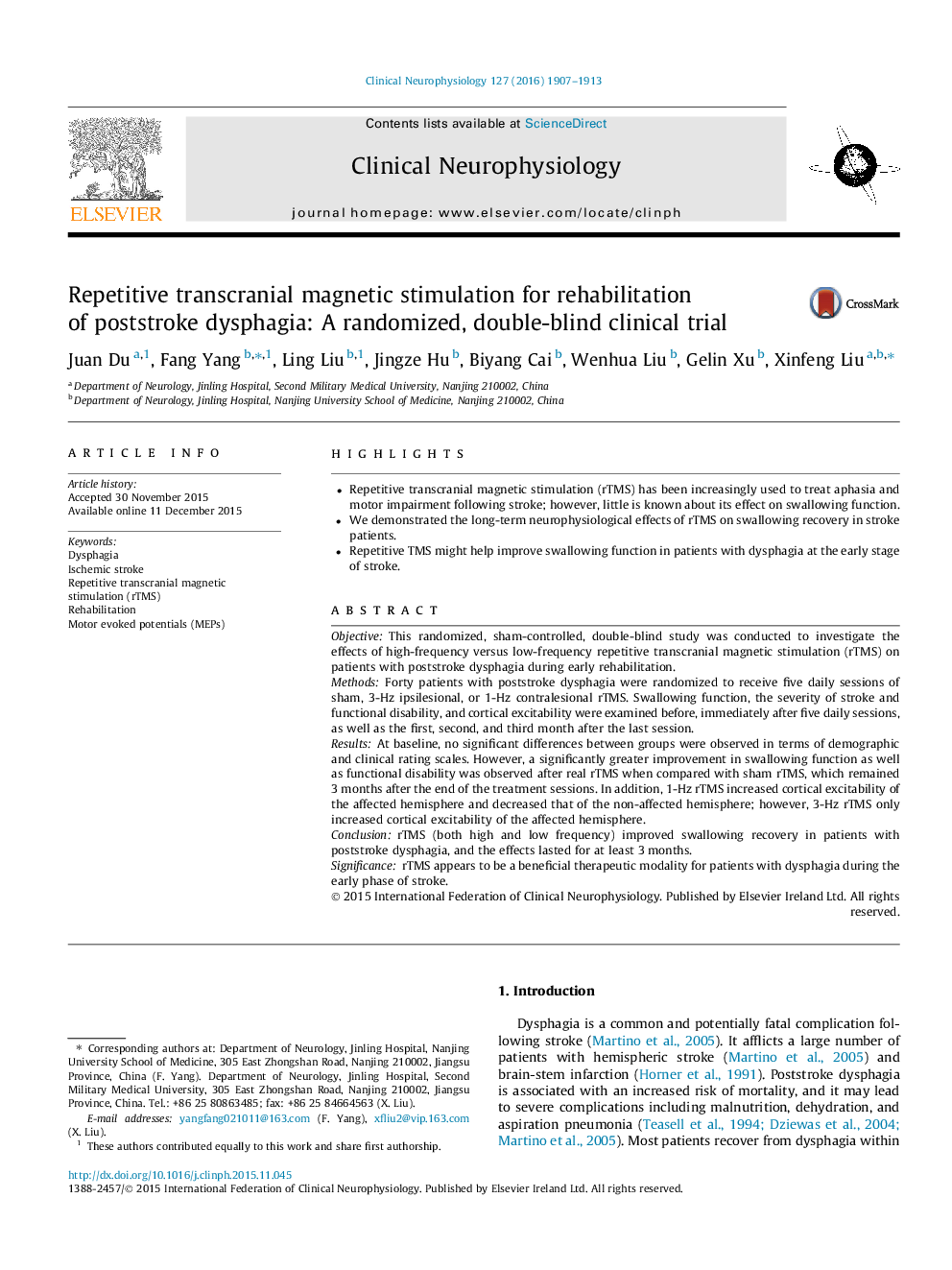| کد مقاله | کد نشریه | سال انتشار | مقاله انگلیسی | نسخه تمام متن |
|---|---|---|---|---|
| 3042906 | 1184966 | 2016 | 7 صفحه PDF | دانلود رایگان |
• Repetitive transcranial magnetic stimulation (rTMS) has been increasingly used to treat aphasia and motor impairment following stroke; however, little is known about its effect on swallowing function.
• We demonstrated the long-term neurophysiological effects of rTMS on swallowing recovery in stroke patients.
• Repetitive TMS might help improve swallowing function in patients with dysphagia at the early stage of stroke.
ObjectiveThis randomized, sham-controlled, double-blind study was conducted to investigate the effects of high-frequency versus low-frequency repetitive transcranial magnetic stimulation (rTMS) on patients with poststroke dysphagia during early rehabilitation.MethodsForty patients with poststroke dysphagia were randomized to receive five daily sessions of sham, 3-Hz ipsilesional, or 1-Hz contralesional rTMS. Swallowing function, the severity of stroke and functional disability, and cortical excitability were examined before, immediately after five daily sessions, as well as the first, second, and third month after the last session.ResultsAt baseline, no significant differences between groups were observed in terms of demographic and clinical rating scales. However, a significantly greater improvement in swallowing function as well as functional disability was observed after real rTMS when compared with sham rTMS, which remained 3 months after the end of the treatment sessions. In addition, 1-Hz rTMS increased cortical excitability of the affected hemisphere and decreased that of the non-affected hemisphere; however, 3-Hz rTMS only increased cortical excitability of the affected hemisphere.ConclusionrTMS (both high and low frequency) improved swallowing recovery in patients with poststroke dysphagia, and the effects lasted for at least 3 months.SignificancerTMS appears to be a beneficial therapeutic modality for patients with dysphagia during the early phase of stroke.
Journal: Clinical Neurophysiology - Volume 127, Issue 3, March 2016, Pages 1907–1913
